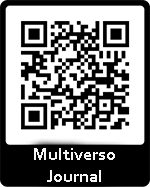The protection of human rights in the work of digital platforms
DOI:
https://doi.org/10.46502/issn.2792-3681/2025.8.7Keywords:
labor protection, human rights, digital platform work, labor testAbstract
Labor relations have had adjustments since their inception so as not to neglect the protection of workers in terms of their human rights, since both social struggles and business competitiveness are opposing forces, but they require each other; likewise, the implementation of platforms in the labor field poses two scenarios, on the one hand, it has the character of a sine qua non requirement for the provision of service; and, on the other, the platform represents a kind of intermediary between the worker and the interested party, in both cases the service is conditioned by the algorithm that organises the work and can carry out management activities. supervision and control that are the responsibility of the employer. Based on this, this research aims to analyze the protection of human rights in the work of digital platforms. The methodology attends to a qualitative, documentary-type design with an explanatory level; predominantly legal sources are used; The techniques have been observation and content analysis together with two instruments, that is, the observation guide and the mixed file. As a global conclusion, specific protection is still needed to strengthen the existing one and offer more tools to legal interpreters, but the employment test adjusted to the new demand for platform work is an immediate tool of great use for the protection of human rights in digital platform work.
References
Asamblea General de las Naciones Unidas. (1966a). Pacto Internacional de Derechos Económicos, Sociales y Culturales. Recuperado el 14 de diciembre de 2022, de https://www.ohchr.org/sites/default/files/cescr_SP.pdf
Asamblea General de las Naciones Unidas. (1966b). Pacto Internacional de los Derechos Civiles y Políticos. Recuperado el 05 de enero de 2022, de www.un.org/es/documents/udhr/
Asamblea General de las Naciones Unidas. (1948). Declaración Universal de los Derechos Humanos. Recuperado el 05 de enero de 2022, de www.un.org/es/documents/udhr/
Cámara de Diputados. (25 de diciembre de 2024). DOF publica reformas que regulan el empleo en plataformas digitales. Recuperado el 18 de febrero de 2025, de https://comunicacionsocial.diputados.gob.mx/index.php/notilegis/dof-publica-reformas-que-regulan-el-empleo-en-plataformas-digitales
Carballo Mena, C. (2023). Empresas digitales y prueba del vínculo laboral. Derecho y Sociedad, (20), 107-132.
Colmenares Bastidas, A. (2011). Los derechos laborales inespecíficos. Enfoque en el derecho venezolano. Revista Latinoamericana de Derecho Social, (13), 57-86.
Conferencia Internacional del Trabajo. (2006). Recomendación sobre la relación de trabajo, 2006 (núm. 198). Recuperado el 11 de diciembre de 2024, de https://normlex.ilo.org/dyn/nrmlx_es/f?p=NORMLEXPUB:55:0::NO::P55_TYPE%2CP55_LANG%2CP55_DOCUMENT%2CP55_NODE:REC%2Ces%2CR198%2C%2FDocument
Congreso Nacional. (2022). Ley 21431 . Santiago de Chile: Diario Oficial 11.03.22.
Consejo de Administración. (2023). Análisis de las lagunas normativas respecto al trabajo decente en la economía de plataformas. Ginebra: Organización Internacional del Trabajo. Obtenido de 347.ᵃ reunión, Ginebra, 13-23 de marzo de 2023.
Díaz, L. (2023). Los tipos de protección social en el teletrabajo. Derecho y Sociedad, (20), 151-172. https://www.derysoc.com/wp-content/uploads/2024/01/DyS-20-8-Los-tipos-de-proteccion-social-en-el-teletrabajo-Luis-Eduardo-Diaz.pdf
Díaz, L. (2024). Desconectados: causas y remedios de la brecha digital. E-Revista Internacional De La Protección Social, 9(1), 80–103. https://doi.org/10.12795/e-RIPS.2024.i01.04
Oficina Internacional del Trabajo. (2021). Perspectivas Sociales y del Empleo en el Mundo 2021: El papel de las plataformas digitales en la transformación del mundo del trabajo. Ginebra: Oficina Internacional del Trabajo.
Organización Internacional del Trabajo. (2024a). Hacer realidad el trabajo decente en la economía de plataformas. Recuperado el 10 de diciembre de 2024, de Conferencia Internacional del Trabajo 113.ª reunión, 2025: https://www.ilo.org/es/resource/conference-paper/hacer-realidad-el-trabajo-decente-en-la-economia-de-plataformas
Organización Internacional del Trabajo. (2024b). Trabajo decente en la economía de plataformas: actualización de la legislación y la práctica. Recuperado el 10 de diciembre de 2024, de https://www.ilo.org/es/publications/trabajo-decente-en-la-economia-de-plataformas-actualizacion-de-la
Parlamento Europeo y Consejo de la Unión Europea. (2024). Directiva 2024/2831 relativa a la mejora de las condiciones laborales en el trabajo en plataformas. Estrasburgo: Diario Oficial de la Unión Europea 11.11.2024.
Pasco Cosmópolis, M. (2012). Los derechos laborales inespecíficos. Revista Chilena de Derecho del Trabajo y de la Seguridad Social, 3(5), 13-26. https://doi.org/10.5354/0719-7551.2012.42978
Raso, J. (2016). El derecho del trabajo como rama del derecho y sus nuevas fronteras. Revista Chilena de Derecho del Trabajo y de la Seguridad Social, 7(13), 13-52. https://doi.org/10.5354/0719-7551.2016.42443
Romagnoli, U. (2017). Estabilidad "versus" precariedad del puesto de trabajo. Derecho y sociedad, (49), 191-194. https://dialnet.unirioja.es/servlet/articulo?codigo=7792279
Sanguineti, W. (2021). El test de laboralidad y el trabajo prestado a través de plataformas digitales. Estudios Latinoamericanos de Relaciones Laborales y Protección Social, (11), 69-76. https://dialnet.unirioja.es/servlet/articulo?codigo=7971438
Uber Newsroom. (2023). Sólo en Uber: ser la mejor plataforma de trabajo flexible – y la más justa. https://www.uber.com/es-US/newsroom/onlyonuber23/
Ugarte, J. (2020). El trabajo en empresas de plataforma: subordinación y más allá. Revista Chilena de Derecho Privado, (35), 17-49. https://doi.org/10.32995/S0718-80722020505
Published
How to Cite
Issue
Section
License
Copyright (c) 2025 Lisbeth Milena Chirinos Portillo

This work is licensed under a Creative Commons Attribution 4.0 International License.
The authors who publish in this journal agree to the following terms:
The authors retain copyright and guarantee the journal the right to be the first publication where the article is presented, which is published under a Creative Commons Attribution License, which allows others to share the work prior to acknowledgment of the authorship of the article. work and initial publication in this journal.
Authors may separately enter into additional agreements for non-exclusive distribution of the version of the work published in the journal (for example, placing it in an institutional repository or publishing it in a book), with an acknowledgment of its initial publication in this journal.



















